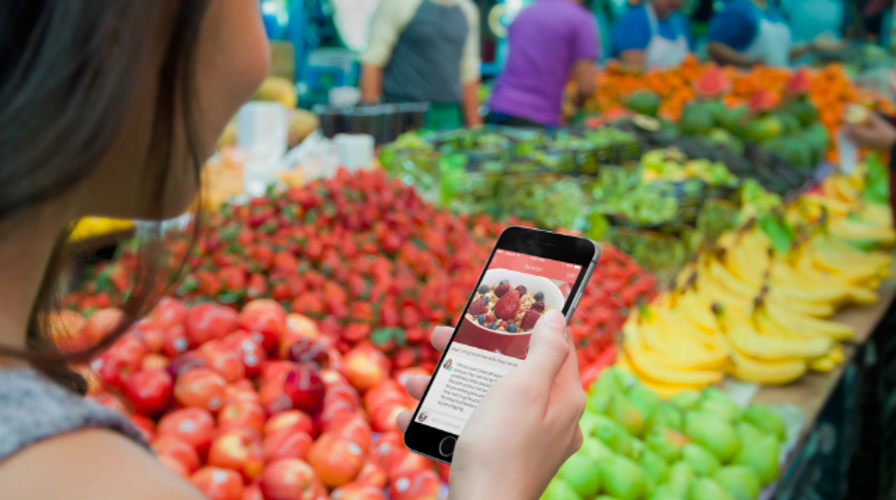Nutritionist in your pocket
We all know how hard it is to eat a healthy and balanced diet. But a new app promises to connect you to a live nutritionist for all the expert advice and feedback you need to make healthy decisions wherever you go
Diet and nutrition apps are another growing food trend. Some offer healthy recipes, calorie and burn trackers and even where to find the healthiest restaurants nearby.
But can numbers on a smartphone be enough motivation?
A study in the Annals of Internal Medicine journal considered weight loss success rates with calorie-tracking apps. The apps aren’t always effective: Researchers saw that some users were not motivated enough to commit the time to track and log calories.
“With MyFitnessPal, you have to be self-disciplined, mindful of your portion size and dutifully look up the calorie value of the meal— or ingredients if it’s a unique or home cooked dish,” 28-year old Janice Chou, who has used the popular calorie counting app, told FoxNews.com.
After looking for a tool that would help her eat healthier and teach her how to balance her meals, Chou turned to a nutrition app called Rise. The program connects users to a registered dietitian to help them improve their eating habits.
"Rise seemed like a really great way to connect with someone who could guide me and advise me on how to eat a more balanced diet," Chou said.
With Rise, users simply snap a picture of each meal and snack and wait for their personal nutrition coach to review it. They can leave comments on photos, or ask questions and provide feedback through private messages.
"I got fantastic feedback [and] really easy changes that I could implement immediately. It didn't feel like I was sacrificing any part of my normal diet," Chou said.
Because the coach can see exactly what his or her user ate, users don't need to search through large databases of foods or ingredients to log meals.
“You get clear feedback in layman's terms and insight into the nutritional value of what you're eating. The information you receive from MyFitnessPal is great— they present your caloric breakdown in an easy-to-understand pie chart— but you don't always understand what it all means,” Chou said.
The idea behind Rise’s one-on-one coaching is to teach the client how to improve his or her overall diet, so when and if they decide to stop using the app they can continue their new healthy lifestyle.
“It holds you accountable for the foods that you’re eating,” Melissa Rifkin, a registered dietician and Chou’s Rise coach, told FoxNews.com. “Sometimes you want to speak with someone and hear what their feedback has to say. Because it’s one thing to look something up, but it’s also another thing to have someone educate you on the food you ate and how you can improve that food.”
Having a nutritionist in your pocket can make grocery shopping and dining out easier, too, users said.
“People struggle the most with knowing which options to pick, especially when they’re in a restaurant or if they’re in a supermarket. A lot of times there are so many different labels to read and ingredients, and people get thrown off and don’t know where to go,” said Rifkin, who regularly looks up restaurant menus to tell her clients which healthy options to choose from.
But as with all diet and weight loss tools, being honest about eating habits is essential for weight loss. Thinking that office donut or extra glass of wine doesn’t count as a meal may prevent users from achieving their health goals. Plus, Rifkin said, “cheat days” are still allowed.
“I allow all of my clients to have one cheat meal a week— that is it. So they can have a free-for-all in that meal, but we know we're right back on the next day,” Rifkin said.
The personal coaching app costs $10 to $15 a week. To learn more about Rise, visit rise.us.

